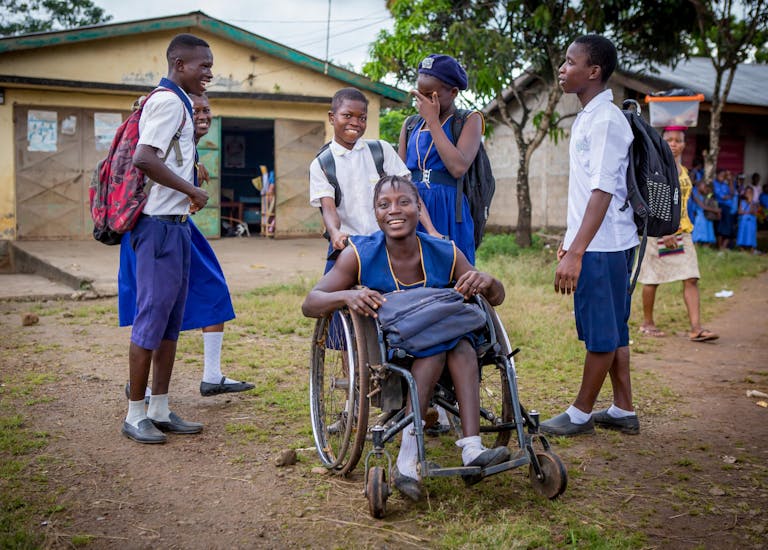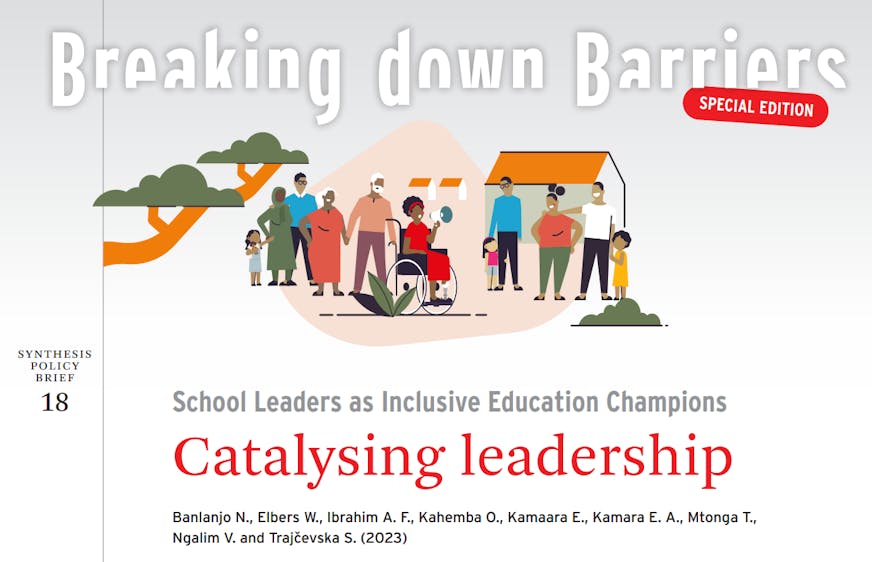Special Edition Policy Brief on Inclusive Education
“How have (informal) school leaders contributed to the progressive implementation of inclusive education practices in their respective schools?”
This was the research question that guided the first comparative study of the Breaking Down Barriers research trajectory. The study was based on 4 separate research studies in Zambia, Sierra Leone, and Cameroon. The study examined schools that, against the odds, have achieved IE successes, focusing on the role of the leadership. It found that successful IE schools across the countries employ a similar set of best practices, suggesting their relevance beyond individual country contexts. The study found that (informal) leadership holds the key to successfully implementing IE. In all schools in the study, we identified exceptional individuals, most notably as head teachers, heads of special units and teachers of special units, acting as the driving force behind overcoming barriers, and promoting and sustaining IE practices. While acting as IE champions, (informal) leaders draw upon their intrinsic motivation and specialised knowledge and expertise. In doing so, they play five key interconnected roles: advocate, connector, knowledge broker, role model and entrepreneur. Check out the policy brief and delve deeper in the roles of the IE leaders and their significance in achieving valuable outcomes for the children with disabilities.
This comparative study was done by Dr. Willem Elbers, Esther Kamaara and Sofka Trajcevska. But we must acknowledge that we stood on the shoulders of our research giants: Edson Alie Kamara (Sierra Leone), Esther Kamaara (Kenya), Ngoran Banlanjo (Cameroon), Oscar Kahemba (Zambia), Dr. Thomas Mtonga (Zambia), Dr. Aisha Ibrahim (Sierra Leone) and Dr. Valentin Ngalim (Cameroon). The research was closely followed and supported by our Strategic Partner Organisations: One Family People, CBCHS and Cheshire Homes Society of Zambia. We are therefore very proud of this beautiful and insightful synthesis policy brief! If you find it valuable, feel free to further share it in your network, tell us what kind of insights brings for your work and please share suggestions for further research on the topic of leadership in education.

